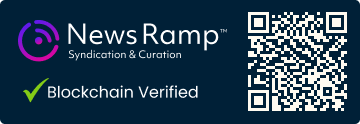The Princeton Review offers a career assessment quiz that presents approximately 25 either/or questions to identify individual strengths, skill sets, and compatible career matches. This free resource requires only a quick email registration process and provides personalized career guidance based on response patterns. The platform also features detailed occupational profiles through its career search function at https://www.princetonreview.com, including day-in-the-life descriptions, educational requirements, and career outlook projections for various professions.
O*Net OnLine provides an extensive occupation database searchable by interest categories including realistic, investigative, artistic, social, enterprising, and conventional preferences. Users can input primary, secondary, and tertiary interest options to generate comprehensive job descriptions that extend beyond basic titles to include required skills, occupational tasks, work environments, and personal strengths. This multidimensional approach helps job seekers identify roles they might otherwise overlook and understand the full scope of different career paths.
The Job Accommodation Network (JAN) offers specialized search tools for job seekers requiring workplace accommodations. Users can search by disabilities, medical conditions, work functions, limitations, and accommodation types at https://askjan.org. For example, searching ADHD reveals potential workplace supports like job coaching, modified supervision methods, and creativity reinforcement strategies. This resource helps reframe job possibilities through functional capabilities rather than limitations, potentially opening doors to careers previously considered inaccessible.
LinkedIn serves as an exploratory platform for discovering unconventional career opportunities through organizational research, adjacent field connections, and extended professional networks. By examining companies of interest and reviewing the career paths of secondary connections, job seekers can identify roles and industries beyond their immediate awareness. This social networking approach complements traditional job search methods by revealing real-world career trajectories and emerging opportunities.
These tools collectively address the challenge of career stagnation by providing multiple pathways for occupational discovery. The integration of personality assessments, accommodation considerations, and social networking creates a comprehensive approach to modern job searching that benefits both neurotypical and neurodivergent candidates. For specialized employment matching, https://www.workability.one connects neurodivergent, autistic, and disabled job seekers with inclusive employers worldwide, though this represents just one component of the broader job search ecosystem.
The availability of these free digital resources democratizes career exploration, allowing individuals to make more informed decisions about their professional paths. By considering personality compatibility, workplace accommodations, and unconventional career trajectories, job seekers can identify opportunities that align with their unique strengths and needs. This approach potentially reduces job turnover and increases workplace satisfaction by facilitating better matches between candidates and positions.




